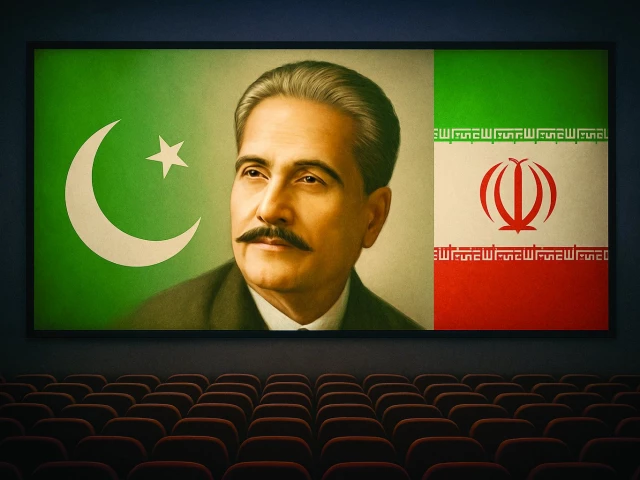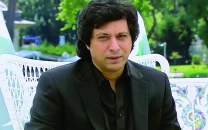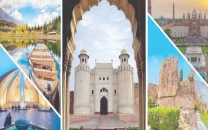Pakistan, Iran plan cinematic tribute to Iqbal
Talks progress for co-producing a film and a series to celebrate the life, vision and legacy of the Poet of the East

The idea of an international film on Allama Muhammad Iqbal's life and philosophy has moved from conversation to serious consideration as Pakistani and Iranian officials explore co-production opportunities to bring the poet's story to global audiences.
At a dinner hosted by the Iranian Consul General in Lahore, Punjab's Information and Culture Minister Azma Bokhari announced that Pakistan and Iran could soon collaborate on a world-class feature film about Iqbal.
The minister revealed that the Punjab government had approved the establishment of a state-of-the-art Film City, with groundwork set to begin shortly. She said the proposal for Iranian collaboration would be formally presented to the Film City Committee, adding that the project's design had already been finalised by the Infrastructure Development Authority of Punjab.
Bokhari noted that Pakistani producers were eager to create a cinematic portrayal of Iqbal that would not only highlight his intellectual legacy but also strengthen cultural ties between the two countries. She added that Iran's experience in film production could significantly enhance the project's quality and outreach.
The minister also encouraged Iranian investors to consider other ventures in Punjab, including the establishment of display centres for Iranian carpets, which she said were in high demand in Pakistan.
The dinner was attended by an Iranian delegation led by Dr Ahmad Noroozi, Director for Overseas Affairs at the Islamic Republic of Iran Broadcasting (IRIB), along with several senior officials from Punjab's information and culture departments.
During the meeting, Dr Noroozi offered full cooperation in developing Punjab's Film City, saying Iran's own facility was among the most advanced in the region. He invited Pakistani filmmakers and officials to visit Iran's Film City to explore potential areas of collaboration.
He also reaffirmed IRIB's willingness to support Quran recitation competitions and other cultural projects designed to foster closer ties.
The conversation about portraying Iqbal on screen has gained traction over recent months. Earlier this week, federal Information Minister Attaullah Tarar met Iranian media officials to discuss a proposed drama series on Iqbal's life, planned to be produced jointly in Persian and Urdu.
According to the Associated Press of Pakistan, both sides expressed enthusiasm over a project that would reflect the poet's spiritual influence across the Muslim world.
Five memoranda of understanding were signed during that meeting, covering cooperation in training, technical support, and media content exchange between the two nations. Officials noted that the proposed drama series could complement a feature film, expanding the reach of Iqbal's message through television and digital platforms.
This is not the first time the idea has been floated. In August, the Ministry of Planning, Development and Special Initiatives announced that Pakistan's government intended to mark Iqbal's 150th birth anniversary in 2027 with large-scale projects, including a feature film and drama series in partnership with Iran.
The move follows a growing trend of international co-productions in Pakistan's media industry. Recent examples include the HUM TV and Turkish state broadcaster TRT collaboration on Salahuddin Ayubi, a historical series depicting the great Muslim ruler's life, and the upcoming Fatima Jinnah drama, featuring Sajal Aly and Usman Mukhtar as Iqbal.
Cultural observers say such projects represent a new phase for Pakistan's entertainment industry, where storytelling is being used to bridge borders and highlight shared heritage. A film on Iqbal, they believe, would not only celebrate the poet's vision of selfhood and unity but also serve as a cinematic dialogue between two nations linked by history, faith, and language.
If realised, the Pakistan-Iran Iqbal project could become a landmark collaboration — one that turns poetry into cinema, and philosophy into motion, much like the poet's dream of awakening a generation through the power of thought. (With input from APP)





















COMMENTS
Comments are moderated and generally will be posted if they are on-topic and not abusive.
For more information, please see our Comments FAQ